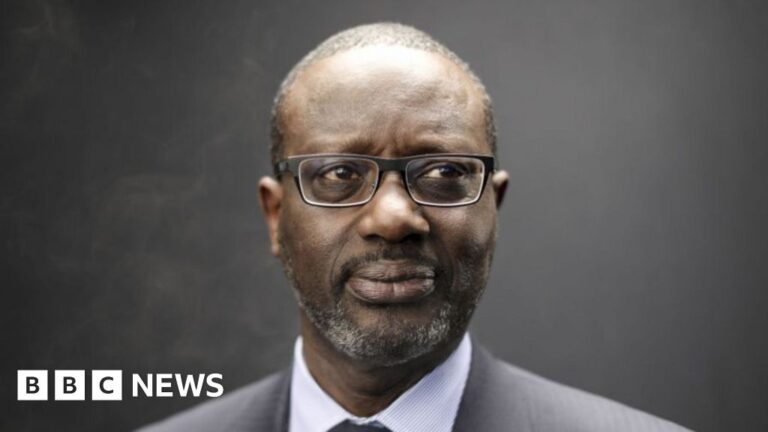The Trump Administration is canceling flights for refugees already approved for travel
The State Department abruptly canceled travel for thousands of refugees already approved to fly to the United States, just days before President Trump’s deadline to end a resettlement program that provides safe haven for people fleeing persecution.
The flight cancellations follow an executive order Mr. Trump signed on Monday that indefinitely halted refugee resettlement. The order effectively halts the process of bringing refugees into the country, which involves many federal agencies as well as nonprofit organizations that host newcomers.
More than 10,000 refugees were currently in the pipeline to the United States, according to government data. Among them are Afghans who were at risk because of their ties to the United States before the withdrawal of troops from Afghanistan. Other refugees allowed to travel included people from Africa, Latin America and the Middle East.
Resettlement team officials said the sudden suspension of flights was a painful blow for refugees who had to follow a complicated and lengthy process to enter the country legally.
Angela Plummer, executive director of Community Refugee and Immigration Services, which resettles refugees in Columbus, Ohio, said the organization expects dozens of arrivals on canceled flights.
“These are people who followed all the rules and are now at risk,” Ms Plummer said. “It’s heartbreaking.”
The decision to end the refugee program is consistent with Mr. Trump’s promise of a broad crackdown on immigration.
Under the decades-old refugee program, people who have fled their home countries due to persecution, war or other life-threatening reasons can legally immigrate to the United States. Mr. Trump said under the order he signed Monday that continuing to host them would burden communities that are ill-equipped to handle them.
The State Department issued a memorandum on Tuesday complying with his order, saying “all previously scheduled travel by refugees to the United States is canceled and no new travel orders will be made.” The International Rescue Committee and other organizations helping refugees “should not require travel for any additional refugee work at this time,” he said.
On Wednesday, U.S. refugee officers at Homeland Security agencies such as U.S. Citizenship and Immigration Services were told to stop making decisions about refugee cases, according to an internal memo obtained by The New York Times.
News that the Trump administration is canceling travel even for refugees cleared to resettle in communities within the United States has shocked leaders of nonprofits contracted by the State Department to help newcomers.
“This sudden suspension of refugee admissions is devastating for families who have already endured unimaginable persecution and are waiting for a chance to rebuild their lives in safety,” said Krish O’Mara Vignarajah, head of Global Refuge.
“Refugees go through one of the most rigorous vetting processes in the world,” he continued, “and it’s heartbreaking to see their dreams of safety derailed days, or in some cases hours, before they can begin their new lives. here.”
Eskinder Negash, president of the US Committee for Refugees and Immigrants, said that “many people have been waiting in refugee camps for years, in some cases decades, and have diligently gone through the refugee process to receive permission to travel.”
“Even if the refugee program is reopened in the future, the indefinite suspension of refugee travel and processing will have lasting trauma and impact on refugees and families,” he said.
Ms Plummer said her group has been fielding calls for years from distraught clients waiting for their relatives to arrive, only to realize the prospect of reunification is now bleak.
Among them is Nur Ahmed, who came to Columbus in 2010 after fleeing the civil war in Somalia. He sponsored his child, younger sister and mother to join him.
Their work stalled during Mr. Trump’s first term as president.
Mr Ahmed’s son and sister, both in their 20s, arrived last week before he returned to the White House. But his 70-year-old mother was due early next month and her arrival could be delayed indefinitely.
“I’m very lucky that my son and sister came, but I’m sad that my mother is left behind,” he said.
Often, members of the same family are assigned different travel dates, which in this case can mean many years apart.
“Trump has delayed us before; now he’s back and he’s late again,” said Ahmed Bey, a truck driver. “All I’ve felt since Donald Trump’s comeback is pain.”
“I haven’t seen my mother since I left, and I don’t know when I’ll see her again,” he said while hauling dry food on a highway in Texas.
As part of an avalanche of executive orders to reduce immigration, Mr. Trump suspended the refugee resettlement program on January 27. Officials from resettlement agencies hoped that refugees who had completed the years-long process and booked flights would still travel to the United States.
In his first administration, Mr. Trump dismantled the refugee program by imposing additional layers of vetting on applicants he deemed to pose security risks and reducing the number of targets the United States was willing to accept.
Each year, the president determines how many refugees the United States is willing to accept in a given year, and the numbers have varied, with Republican presidents historically setting the highest limits.
However, refugee admissions have fallen to a record low of about 11,000 in 2020, the final year of Mr. Trump’s presidency, down from 85,000 in 2016 under President Barack Obama. Mr Trump has favored religious minorities, mainly white Christians from countries such as Moldova and Russia.
President Biden rebuilt the program and refugee admissions surged, reaching 100,000 last year, the most in three decades.
This time, Mr. Trump has justified a freeze on refugee admissions that drains resources from cities that should benefit Americans.
“The United States does not have the ability to welcome large numbers of migrants, particularly refugees, into its communities without undermining the availability of resources for Americans,” the executive order said. the hours of the swearing-in ceremony.








